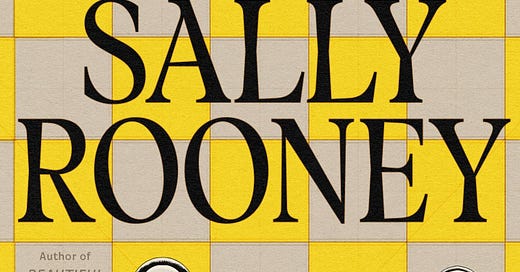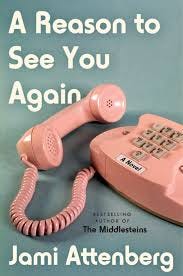Reviews: Sally Rooney's "Intermezzo" and Jami Attenberg's "A Reason to See You Again"
I was on a sibling kick.
"Intermezzo" explores grief, family dynamics, and the complexities of human relationships. While it showcases Rooney's signature style of prose and observed characters, the novel falls short of the high bar set by her previous works.
The story revolves around brothers Peter and Ivan after their father's death. Rooney's strength lies in her ability to dissect the minutiae, which shines through in the brothers' strained relationship. The alternating perspectives between Peter and Ivan provide an exciting contrast, offering insights into their distinct personalities and coping mechanisms.
I found the writing to have some sharp moments that remind me why she's become a literary sensation. Her depiction of Dublin is a vivid and fitting backdrop to the characters' emotional journeys. However, "Intermezzo" lacks narrative drive. The plot meanders, and while this approach might be intentional, mirroring the disjointed nature of grief, it left me feeling disconnected from the characters' experiences.
Where the story truly resonated with me was the portrayal of the brothers' relationship. As someone with a complex sibling relationship, I was deeply connected to the tension between Peter and Ivan. The way Rooney captures the undercurrent of unresolved issues and the potential for explosive confrontations felt achingly familiar. When the brothers finally clash, it's with a raw intensity that mirrors the big fights I've experienced with my siblings (I have a scar to prove it). These moments are when the novel feels most alive and emotionally authentic.
Speaking of books with siblings, where "Intermezzo" felt like a muted interlude, this next was a full-bodied symphony (playing with metaphors here, give me grace).
Jami Attenberg's "A Reason to See You Again" resonated deeply. If you’ve grappled with family dynamics, loss, and the enduring quest for maternal love, this book will speak to you. This poignant, multi-generational saga of the Cohen (ahem, ahem) family is a masterclass in storytelling, weaving together themes of grief, ambition, and unbreakable family bonds with heart-wrenching honesty.
At the novel's core is the portrayal of Frieda, an overbearing Jewish mother whose grief transforms her into a shadow of her former self. Attenberg's depiction of Frieda's descent into a boozy existence in Miami is raw and painfully authentic. With unflinching clarity, how a mother's inability to nurture in the wake of loss can ripple through generations, leaving her children forever chasing the specter of maternal love they never fully experienced.
The novel brilliantly explores how this void shapes the lives of sisters Shelly and Nancy. Their divergent paths—Shelly's immersion in the tech world and Nancy's early marriage—are beautifully rendered. Attenberg's insight into how we try to "repair and make up for the mother we wanted and never had" struck a nerve and stuck with me after the last page.
Critics of the book highlight its episodic nature and how she quickly glosses over major moments. These criticisms, for me, were its strengths. I loved how she left so much open to interpretation, how I could plug in my own grief, my own reflections, to understand what happened in what was unwritten. I didn’t need Attenberg to show me the depths of the internal struggles; I’ve been there; I can fill in the blanks.
This is not just a must-read; it's a must-feel. And reading it during the High Holy Days was just way too fitting. I will recommend this book to anyone who will listen.







